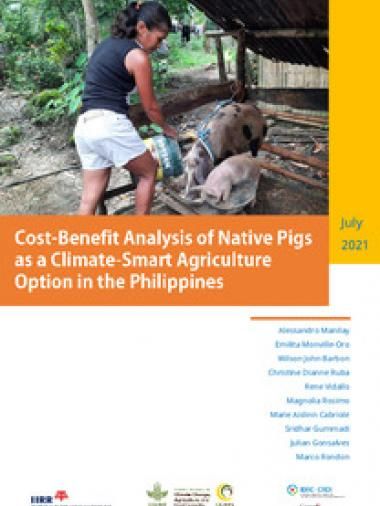Cost-Benefit Analysis of Native Pigs as a Climate-Smart Agriculture Option in the Philippines

The Climate-Smart Village (CSV) approach is one of the initiatives that was developed to address the impact of climate change on marginalized rural households, and one of the climate-smart agriculture (CSA) options implemented in the Philippines was raising native pigs. A cost-benefit analysis (CBA) was conducted to assess the financial benefits of raising native pigs by determining the net income generated by the village households. A total of 52 households from Guinyangan, Quezon and Ivisan, Capiz were interviewed as survey participants while, village and municipal officials acted as key informants. Our findings showed that majority of the households surveyed generated positive net income in raising native pigs. However, 2020 profits decreased possibly due to the effect of the COVID-19 pandemic. The study also revealed the reliance of producers in commercial feeds instead of maximizing the available forage; keeping of livestock as inventories resulting to additional costs; and the lack of record keeping practices and absence of a price monitoring system causing the producers to be dependent on the prices offered by the buyers. Thus, providing education and training support on monitoring and assessing costs of raising pigs, and marketing assistance would be valuable to the households.
Citación
Manilay A, Monville-Oro E, Barbon WJ, Ruba CD, Vidallo R, Rosimo M, Cabriole MA, Gummadi S, Gonsalves J, Rondon M. 2021. Cost-Benefit Analysis of Native Pigs as a Climate-Smart Agriculture Option in the Philippines. Wageningen, the Netherlands: CGIAR Research Program on Climate Change, Agriculture and Food Security (CCAFS).